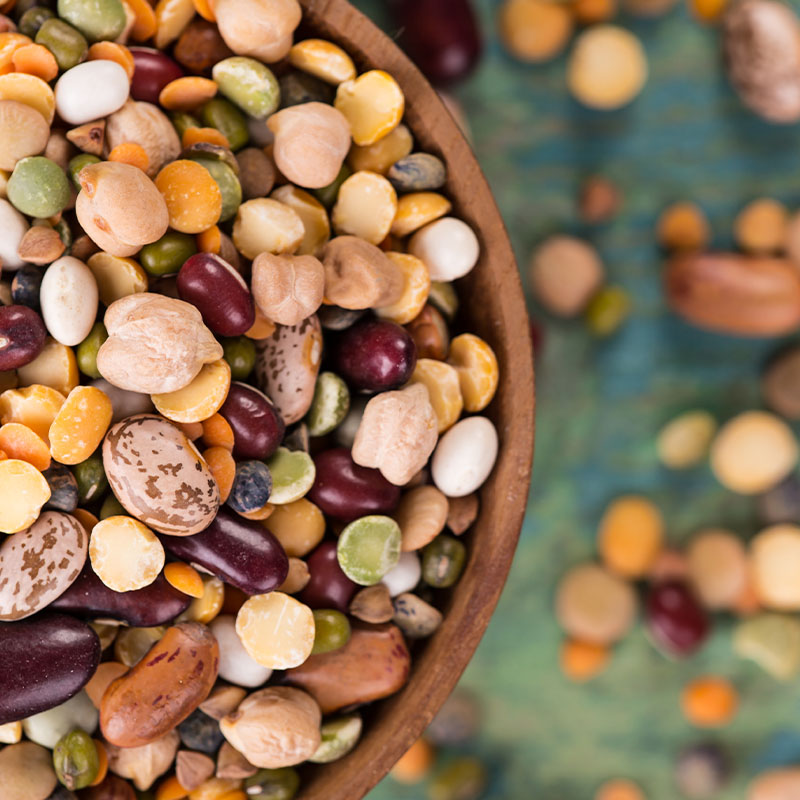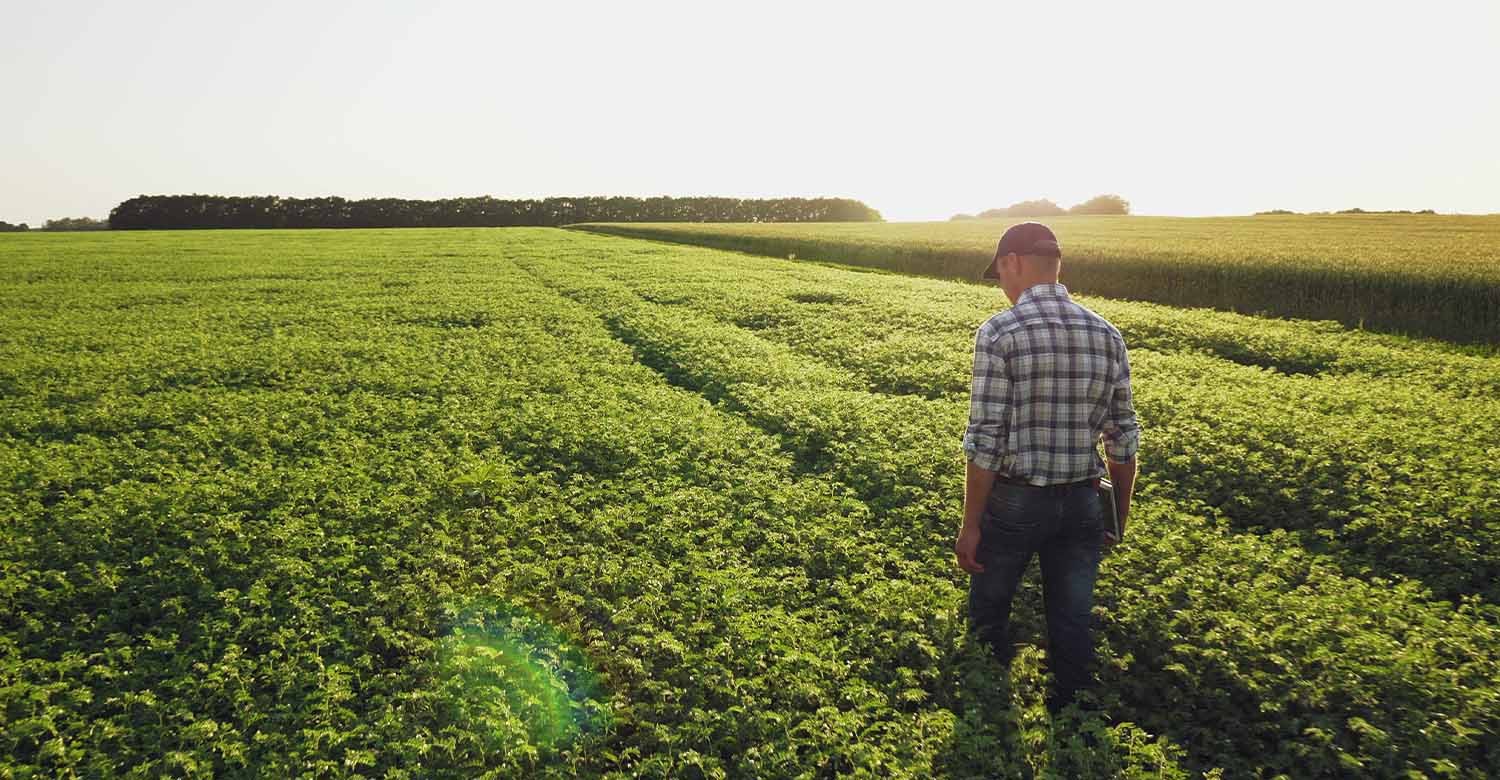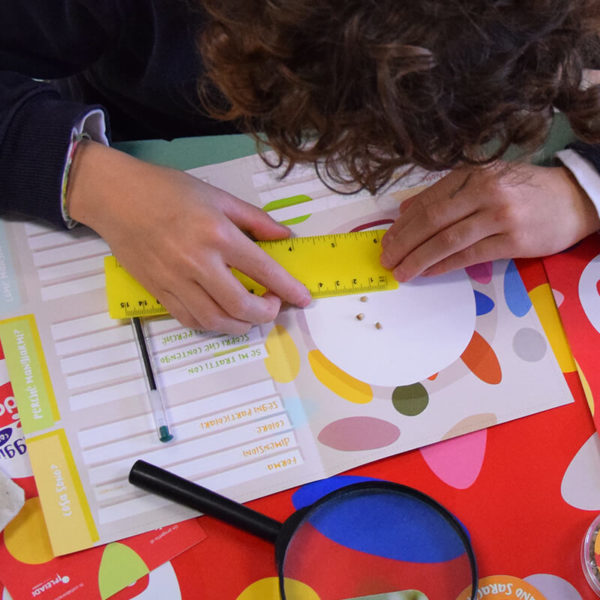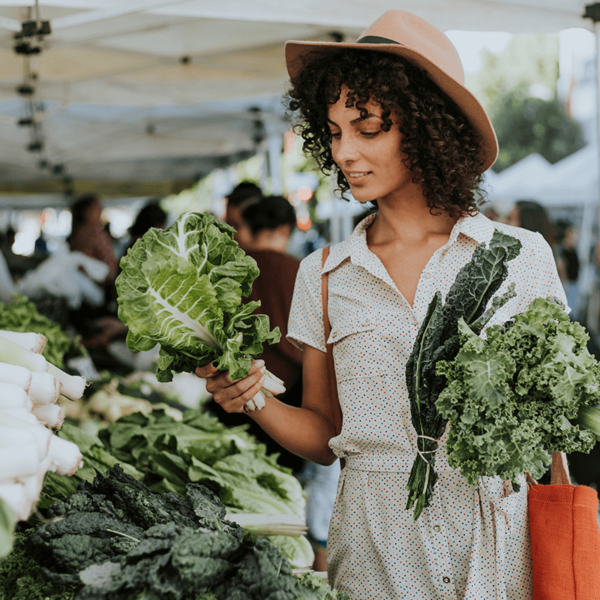
BEANS WILL SAVE the WORLD
Reading time: 3 minutes
Not all superheroes have cloaks, however, some come out of a pod, just like beans do. This is because pulses are very good for you, not only for those that eat them regularly, but for the planet too: they are the absolute stars of a healthy and balanced diet, they are super versatile, easy to eat and last long on the shelf. But did you know that chickpeas, lentils, beans and peas also have a low environmental impact, and are thus considered “the food of the future”?
Why pulses are the planet’s friends
After having been renamed “nutrients for a sustainable future” by FAO, as they are a goldmine of well-being and are at the base of all the most famous diets known for longevity, pulses have recently been rediscovered not only for their undeniable nutritional value but also for their sustainable qualities, linked to both the improvement of the sustainability of our agri-food systems, and their deep-rooted place in peasant tradition.
Let’s see how and why pulses can be considered the “food of the future” at the centre of a sustainable food system.
MORE PULSES LESS CO2 EMISSIONS
As the researchers explain, food production is one of the industries with the largest environmental impact: agriculture, livestock breeding and forestry alone are responsible for about a third of CO2 emissions globally. The Intergovernmental Panel on Climate Change (IPCC) states that agriculture is responsible for about half of human-induced methane emissions, as well as the main source of nitrous oxide. Two gases with a high greenhouse effect, especially when it comes to meat consumption.
According to the IPCC’s estimates, by eating more fruits and vegetables, and significantly reducing the consumption of red meat, we can help in reducing emissions between 1.8-3.4 Gt CO2eq per year by 2030, that is a value “comparable to the emissions generated by global deforestation”. Pulses are an alternative source of protein, and thus play a decisive role in protecting the environment.1

PULSES, AN ELIXIR FOR THE PLANET
Pulses are really a magic cure for the planet. They help the soil stay healthy and keep it fertile without the use of fertilisers, thus significantly reducing their environmental impact. Pulse crops are natural nitrogen fixers. They are able to fix nitrogen from the air and transfer it to the soil at the roots, enriching the soil with nutrients and making it more fertile for subsequent crops. The use of fava beans, peas or lentils as natural fertilisers in crop rotation is now common practice in organic farming.2
Another advantage is that they grow even in drought, as they need little water. They adapt remarkably well to different climatic conditions on various continents and they can also be planted together with other crops (such as corn and wheat), with the consequent reduction of soil erosion and environmental pressure.3
PULSES AND CULINARY TRADITION: AN INSEPARABLE BOND
Let’s not forget how environmental sustainability is linked to tradition: a culinary tradition that in our country is deeply rooted in pulse-based dishes, thus adding value to the entire Italian rural context. Rediscovering ancient pulses aids in promoting the local territories, thus also preserving the biodiversity of foods that have been undeservedly neglected for so long.4
In order for pulses to fulfil their function as “food of the future” at the centre of a sustainable food system, consumers need to be given alternatives that are always in line with the times so as to make them part of their daily diet. Always at the forefront when it comes to sustainability, Pedon translates this with the expression “natural evolution”: a process that does not imply leaving the past behind, but rather, an adaptation to new lifestyles and food enjoyment without losing sight of the naturalness and healthiness of the product.
We are aware that long cooking and soaking times of dried pulses discourage consumers, so we wanted to offer valid alternatives by enthusiastically embracing the challenge of change. This is how our fast-cooking ranges such as I Salvaminuti (the Classics, Rich In, Broths and Soups, Mixes for salads, Alternative Risottos and gluten-free) were born, along with the ready to eat line that doesn’t involve cooking at all such as I pronti (Pulses, Grains, Mix, Mix with Vegetables and Le Zuppe) or the new Legumi fatti a Snack pulse snacks (in the Natural, Tasty and Functional – options), healthy hunger busters rich in proteins. The use of pre-cooking and steaming allows us to bring products that are healthy, easy to prepare and available on the go to your tables. All united by a single, ambitious mission: to “help feed 10 billion people without needing another planet”.5
Bibliography
1-3) “Il contributo dei legumi alla salute e alla sostenibilità” MakingPharmaIndustry – piattaforma di MakingLife indirizzata al mondo della produzione farmaceutica, biofarmaceutica e MedTech e del loro indotto, Source makingpharmaindustry.it
2-4) “Legumi e sostenibilità: ecco perché mangiare i legumi è importante per la salute e l’ambiente”, Salento Km0 Laboratorio Urbano presidio di promozione, distribuzione e tutela dei prodotti agricoli locali e della biodiversità, Source salentokm0.com
5)“E se i fagioli potessero davvero sfamare il mondo”? Al microfono con Loris Pedon, il “re dei legumi” – Qdpnews.it Quotidiano del Piave, Source qdpnews.it

 Torna al menu
Torna al menu

